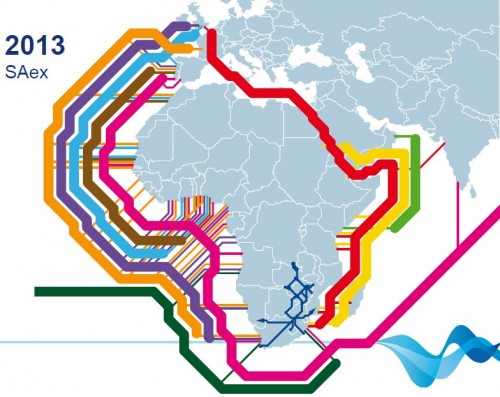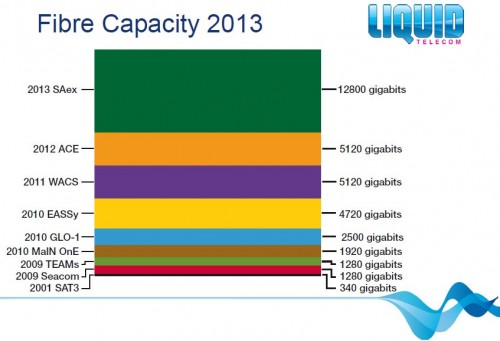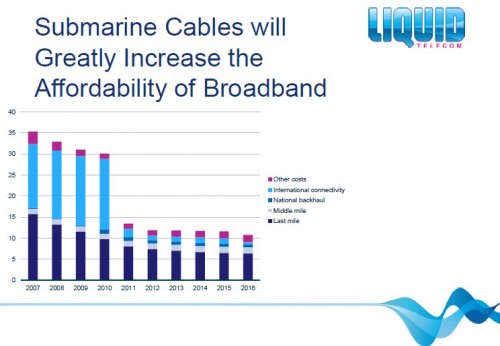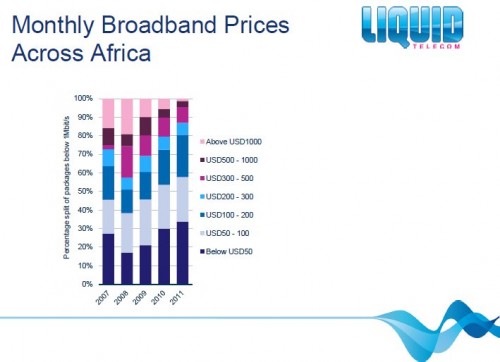Fibre capacity, submarine cables, and African Internet in 2022
The African Peering and Interconnection Forum (AfPIF), an annual conference held by the Internet Society, fosters cross-border interconnection opportunities. The event provides a forum where key players from infrastructure and service providers, IXPs, regulators, and policy makers can share their experiences and learn from experts in the field.
One presentation that stood out as we looked through the AfPIF 2012 Programme is from Liquid Telecom, a fibre operator in Southern Africa that is part of the Econet Group. Our favorite slides are summarized below:
Submarine Cable Map 2013
- Color-coded by cable, chronologically from inner-to-outer
Fibre Capacity 2013
- Amazing gains since 2009, in terms of number of cables and capacity
Cost Breakdown Satellite vs. Cable
- International connectivity is 54% of satellite broadband cost, but only 13% of cable broadband cost
- Conversely, the cost of last mile is 34% of satellite broadband cost, but only 61% of cable broadband cost
Affordability of broadband, 2007-2016
- International connectivity costs will drastically drop
- Last mile costs will decrease very slowly
Monthly broadband prices for packages below 1Mbit/s
- Prices have reduced slightly – but not much – since 2007
- As of 2011, most are under USD 100
- 22% are in the USD 200-300 range
African Internet, 2012
- Multiple submarine routes have led to greater competition and lower pricing
- Some cross border connections
- Nearly all countries have a local internet exchange point
- Latency to Europe is 50% lower than in 2002, but within Africa, latency is nearly the same as direct satellite can provide
African Internet, 2022 (prediction)
- Meshed terrestrial Internet with fewer connections to submarine cables
- Questions: who will do the cross border peering, will the African backbone be controlled by African operators or large US-based carriers, will there be enough local African content to support an advanced land-based network
Source: “Bridging the African Internet,” Liquid Telecom, August 2012.
















 Twitter
Twitter Facebook
Facebook Pinterest
Pinterest
[…] Fibre capacity, submarine cables, and African Internet from the beginning to 2022 predictions From https://www.oafrica.com – Today, 7:33 AM […]